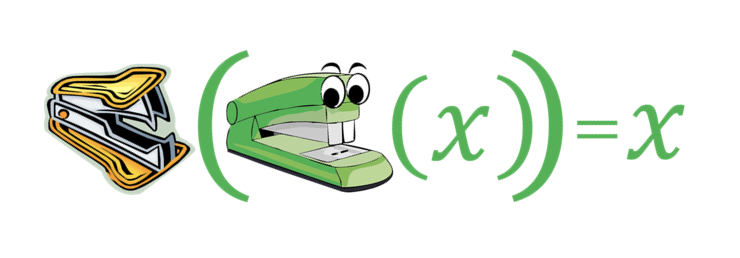Total of 284
NEW
HIRING STUDENTS - A Level Maths students (predicted A*) of Further Maths (predicted A or A*) to type solutions for resources and very neatly handwrite model solutions. Please get in touch via the contact form.
NEW
HIRING TEACHERS - experienced teachers, lecturers, math graduates/students for a unique online tuition platform opportunity. Interview and knowledge test required. Please get in touch via the contact form.
Newsletter sign up!
Enter your email to sign up to our newsletter for updates!
Thursday 16th May 2024, 2:00:00 AM
iGCSE Edexcel 4MA1 Paper 1F (Calculator)
-95
days
-18
hours
-59
minutes
-36
seconds
Monday 3rd June 2024, 6:30:00 AM
iGCSE Edexcel 4MA1 Paper 2F (Calculator)
-77
days
-14
hours
-29
minutes
-36
seconds
Thursday 16th May 2024, 2:00:00 AM
iGCSE Edexcel 4MA1 Paper 1H (Calculator)
-95
days
-18
hours
-59
minutes
-36
seconds
Monday 3rd June 2024, 6:30:00 AM
iGCSE Edexcel 4MA1 Paper 2H (Calculator)
-77
days
-14
hours
-29
minutes
-36
seconds
Edexcel A 4MA1
Papers
The Edexcel iGCSE 4MA1 maths course has 2 papers. Both are calculator and each are worth 100 marks and 2 hours long.
Exam Dates
GCSEs can only be sat in May/June with resits in November. iGCSE exams can be sat 3 times a year in November, January and May/Jun, so iGCSE is more fleixble than GCSE in terms of when you can take them.
Note: Until 2023, the Edexcel iGCSE could also be taken in January, but from November 2023 it’s been brought into line with the other exam boards, with sittings in November and May/June. November sittings are for resits.
Syllabus
Detailed syllabus list for iGCSE organised by topic
Detailed syllabus list for iGCSE organised by grades
Foundation Versus Higher
Papers 1F and 2F are foundation papers and papers 1H and 2H are higher papers. A higher. The foundation paper caps grades at Grade 5. The higher paper has a minimum grade of Grade 4, with anything under that becoming ungraded. There are some questions which overlap because everyone learns some of the same content – higher tier students learn what foundation tier students do plus extra. Foundation tier papers will therefore have less content and only content up until a grade 5. Higher tier papers will have some of the foundation content plus a lot more!
Differences between GCSE and iGCSE
GCSE has 3 papers (one non-calculator and two calculator) whereas iGCSE has 2 papers (both calculator). Both GCSE and iGCSE are graded from 1-9. Exam dates are more flexible for the iGCSE.
The iGCSE papers are more formulaic and more predictable that the GCSE papers and require less problem solving skills. This is primarily because the iGCSE caters for students internationally where English is not their first language. iGCSE contains some additional challenging contents (such as basic calculus) that a student would have to learn if they want to achieve a level 9 grade. iGCSE has more actual maths (e.g. solving equations and algebra), but this can be prepared for well with practice and memorising set methods
GCSE Maths is only offered in the UK, whereas the iGCSE is both in the UK and internationally. However, only private schools offer iGCSE in the UK, whereas private and state schools offer GCSE.
A formula sheet is given for the iGCSE course, but not for GCSE. The difference between GCSEs and iGCSEs are considered so minor, that either option is not perceived as ‘better’ or ‘worse’ than the other one and are therefore accepted as ‘equivalent’ qualifications by colleges and universities. This is a bit unfair as it is easier to get top grades in iGCSE maths than in GCSE maths.
Topic List comparison between GCSE and iGCSE
For a very detailed description of the difference between GCSE and iGCSE Maths and everything you couold possibly need or want to know about GCSE and iGCSE maths click GCSE Maths Past Papers
Papers ending in R
You will notice that some papers end in R which means Regional. These papers are taken in some countries with different time zones (Asian/Pacific regions). This is so that papers cannot be leaked. Otherwise, a student who already had their exam can simply leak the paper to a person in another country with a time zone that is behind.


Older Papers:
The most recent syllabus is from 2019 onwards. Older Edexcel iGCSE maths past papers from 2004-2018 can be found by clicking here:
2018
2019
2020
2021
2022
2023
2024
Samples
Specimens
Maths Revision and Resources For All Maths Courses
What are you waiting for? It's time to get started!
Simple, easy to understand Maths
MYMATHSCLOUD
HomeTuitionModulesTopicsTestimonialsAbout MePricingBlogForumContactFAQMotivation/AdviceBrainteasers/Logic PuzzlesInteractive LearningGamesCompetitionMusicMODULES
A-Level GCSEKS2 / 11+ / UKMTKS3 - Years 7, 8 & 9TopicsIBAP StatisticsAP CalculusUni & Uni AdmissionsCONTACT
© 2020 MyMathsCloud

